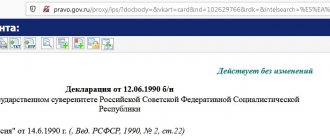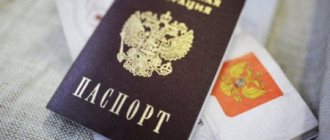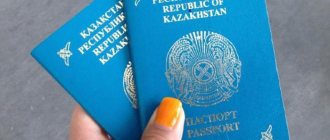For most Russian women, the problem of “where to give birth” is not one: they give birth at home, in Russia. Few, mostly wealthy Russian women, can afford to give birth abroad. The reason is simple: many women do not trust the Russian obstetrics system in particular and Russian healthcare in general. However, there are citizens who dream of foreign citizenship; giving birth abroad is a conscious choice for them. If there are serious intentions, a million legal and very simple questions immediately arise: how, where to give birth, what expenses will be expected? Will the baby receive citizenship immediately or later, what documents need to be collected?
Two principles, two grounds for granting citizenship
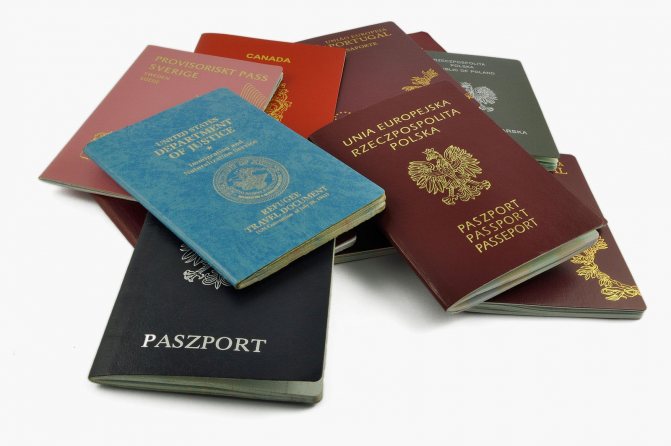
All countries on the planet can be divided into two groups, which are guided when granting citizenship to newborns by the following two principles:
- Jus sanguinis or “principle of blood.” It’s very simple: since the parents are citizens of this country, then the mother can give birth anywhere and in any country on the globe - the child will automatically receive the same citizenship as the parents.
- Jus soli or “soil principle”. As the name implies, all children born on the territory of the state can count on its citizenship, regardless of which passport both or one of the parents have.
According to the first principle, citizenship is granted to a child in the Russian Federation, and this is good: the child already has one passport in his pocket. But we are interested in countries abroad where you can obtain a second citizenship only by being born on their territory.
Father is in the kitchen washing dishes. The son comes in and asks: “Dad, what is a bigamist?” “This is a man who washes twice as many dishes as me.”
Registration of a child born abroad in Russia!
Federal Law on Citizenship of the Russian Federation. 62-FZ. Article 12
Article 12. Acquisition of citizenship of the Russian Federation by birth
On the application of the first part of Article 12, see Determination of the Constitutional Court of the Russian Federation dated May 24, 2005 N 235-O.
1. A child acquires citizenship of the Russian Federation by birth if, on the child’s birthday:
The provision of paragraph “a” of part one of Article 12 does not prevent a person, both of whose parents or his only parent are recognized as citizens of the Russian Federation by birth, regardless of the place of birth of this person in the territory of the former USSR, from obtaining recognition of citizenship of the Russian Federation by birth, unless this the person has not lost the citizenship of the Russian Federation by his own free will (Determination of the Constitutional Court of the Russian Federation of April 21, 2005 N 118-O). a) both of his parents or his only parent have citizenship of the Russian Federation (regardless of the child’s place of birth); b) one of his parents has citizenship of the Russian Federation, and the other parent is stateless, or is declared missing, or his location is unknown (regardless of the child’s place of birth); c) one of his parents has citizenship of the Russian Federation, and the other parent is a foreign citizen, provided that the child was born on the territory of the Russian Federation or if otherwise he will become stateless; d) both of his parents or his only parent living on the territory of the Russian Federation are foreign citizens or stateless persons, provided that the child was born on the territory of the Russian Federation, and the state of which his parents or his only parent are citizens does not provide the child's citizenship.
(Clause “d” as amended by Federal Law No. 151-FZ of November 11, 2003)
2. A child who is on the territory of the Russian Federation and whose parents are unknown becomes a citizen of the Russian Federation if the parents do not show up within six months from the date of his discovery.
It follows from paragraph “c” of Part 1 of the article that if the child’s father is officially recorded as the father in the birth document, then you need to obtain in the Netherlands some document from which it follows that the Netherlands refuses to grant citizenship to the child. Only if there is a threat that the child will become stateless will he have to be granted Russian citizenship.
Choosing a country for childbirth
There are not so many states on the planet that grant citizenship based on the principle of soil, and some of them have significant conditions for obtaining citizenship.
In distant, sultry Argentina... we give birth to the sounds of tango!
Most Latin American countries will grant citizenship to a newborn: Brazil, Argentina, Peru, Colombia, Panama, Ecuador, Honduras, Bolivia, Venezuela, Chile, Nicaragua, Uruguay, Paraguay, El Salvador. This, of course, is very good, but the cost of travel can be very high, the level of development of healthcare depends on your luck, and going to some countries is simply dangerous, like Venezuela, where the crime rate is off the charts.
In order to easily obtain citizenship, it is recommended to give birth abroad in Latin America in Mexico: they say that the level of medicine there is very good, and thanks to low prices, many residents of the former USSR go to give birth abroad in Cancun. The cost of prenatal care with doctors, stay in the clinic and the birth itself, related medical services is 4-7000 US dollars, the birth itself starts from 2500 dollars. If you add air tickets, accommodation and meals, you can spend 15-17,000 US dollars.
There is one nice feature in Mexico: after 2 years, the father and mother of a new Mexican citizen can also receive passports of this country (the same rules work in Brazil and in a number of other states in LA)! In Mexico, pregnant women are treated with a very gentle and reverent attitude everywhere, not only in the clinic.
There is a small problem with acclimatization: for a pregnant woman, the tropical climate can be a huge challenge, but air conditioning is everywhere there.
Caribbean states: why do you need such citizenship?
Small and very tiny countries of the Caribbean are ready to grant citizenship to a baby: Antigua and Barbuda, Jamaica, Dominican Republic, Saint Lucia, Saint Vincent and the Grenadines, Trinidad and Tobago... But the question arises: why should a child become a citizen of an exotic, tiny island country? the size of South Butovo? There are two obvious advantages:
- These states have a visa-free regime with a bunch of others, very often with the European Union and the USA, Canada, Australia.
- What if the child becomes a businessman when he grows up? These countries offer fabulous business and taxation conditions; becoming a resident is very promising!
By the way, giving birth abroad in some Caribbean countries can be quite good: medicine is developed in some places. As for prices, they are unlikely to differ significantly from Mexican prices.
USA: everyone dreams of giving birth abroad in America
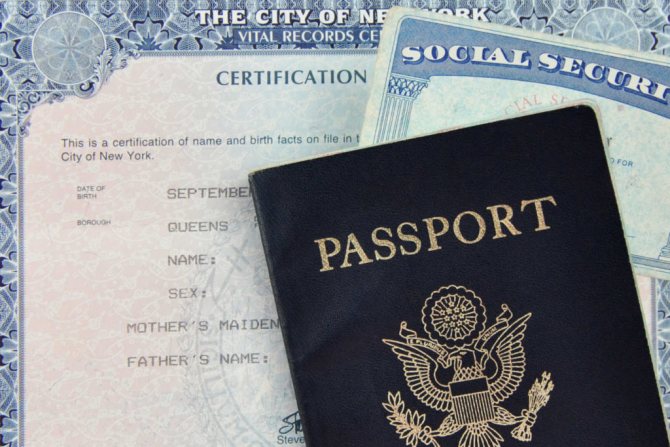
The most attractive option for giving birth abroad! The US border services do not put any obstacles in the way of pregnant women, but they will try to make sure that the mother really intends to return to Russia after giving birth. Medicine in the USA is the best in the world! After giving birth, the child will receive a Birth certificate - an American birth certificate, which is actually confirmation of the right to citizenship, and also an individual social security number, and within 3-4 weeks you can get a passport for the baby. Your child is a real American!
Note: Parents of a newly minted US citizen have no right to absolutely anything, including a green card.
You will need a B2 visa if the belly is already noticeable, considerable expenses for flights, clinics, rental housing... An American passport will be very expensive, but it's worth it!
Cost of childbirth in the USA according to conservative estimates
There are two ways: look for an intermediary company or organize a trip to the States yourself. The intermediary company will take a commission, but in return you will have absolutely no hassle or worries, except that you will have to deal with visa matters and tickets yourself.
Here's what the cost of giving birth abroad in the United States consists of:
- The flight will cost about $2,000 round trip.
- Since in most cases you need to arrive much in advance (3 months before the birth), you need to take care of comfortable accommodation, rent an apartment or apartment. Of course, it all depends on the city and region, but on average you can meet the amount of 1500-2000 dollars for a month of living, 3 months before giving birth and about a month after.
- The expectant mother needs to eat well! Household expenses and food, if not luxurious, will cost $900-1300 per month. It’s good if you find an apartment near the hospital and in a comfortable location: you can save on a taxi. We are not talking about entertainment, otherwise the amount will increase.

- All medical services (pregnancy management, tests, the birth itself, daily stay in the clinic, consultations with a gynecologist and pediatrician, examinations, etc.) depend on the prestige of the hospital where you are going to give birth, and on the state and city. The same package of medical services in Miami will cost 7-9000, and in New York or Los Angeles - about 20,000 thousand USD, on average 10-15,000, and the quality of services in America is excellent everywhere. These prices are for natural births; caesarean births will cost between $4 and $6,000 extra.
- Registration of all kinds of documents after the birth of the baby will cost inexpensively: from 500 to 1000 dollars.
As a result, if you organize a trip to the USA on your own, the costs can reach 25-30 thousand dollars, if you give birth with your husband or mother - even more expensive (tickets, accommodation, food).

Intermediaries offer packages from “economy” to “luxury”, approximately from 15,000 to 50,000 dollars. A package for 50 thousand “greens” means a personal assistant and a rental car, care from leading American doctors, an individual ward... A “turnkey” birth, where everything is provided to the smallest detail, there are even excursions and shopping consultations. In principle, not so expensive by Moscow standards.
Only when the child turns 21 and lives in America can he begin the long procedure of reunification with his father and mother, initiating their move to the United States. Your grandchildren will be American by default, but there are caveats: only if your child has lived in the US for at least 5 years.
It is important to know: after 18 years of age, your US citizen child will be required to pay taxes in the US!
It is possible that under the current administration of President Trump, the rules for obtaining citizenship for newborns will be tightened: there is too much influx of women from Mexico who are trying to bring all their relatives to the United States as quickly as possible, taking advantage of loopholes in the law.
We are going to give birth abroad to the European Union

This is a bad option to give birth abroad... To obtain citizenship, a child needs one of the parents to already have a passport from one of the EU countries. Giving birth abroad in the EU is comfortable and safe: medicine is up to standard, but the newborn will have to be registered at the Russian consulate and that’s where it all ends. A small exception is Spain. If a non-citizen child was born abroad in this wonderful country, upon reaching the age of 18, he can apply to become a Spanish citizen.
The rest of the world
In Asia, citizenship by right of soil is provided by Pakistan, but the level of medicine there can hardly be called acceptable; a Muslim country with its own customs may not seem a suitable choice for a woman giving birth. In Oceania - Tuvalu and Fiji. It’s very far away and it’s unknown how everything will go there? Not every pregnant woman can endure a flight of at least a day without problems. Giving birth abroad (citizenship is good, but you still need to give birth without problems) can be too difficult a test for the health of the mother in labor, especially in the later stages.
How to give birth abroad step by step, what needs to be done in advance?

- Choose a country, first study all alternative options, weigh all the pros and cons.
- Find a clinic and contact it. Find out in advance the cost of services, whether there is a “first visit” rule (by what week you need to arrive), what languages the doctors and medical staff speak. You will probably need a translator, but this is a small problem: there are many of our compatriots living all over the planet. Find out everything about the documents required by the clinic! You may have two or even more trips during pregnancy (plus the birth itself): sometimes the clinic requires examinations and tests. The second option is to arrive long before the birth, because visas are usually issued for a period of 180 days or more.
- Get your visa. By the way, in Mexico, for example, visas for Russians are issued according to a simplified procedure.
- Find an apartment or apartment, agree in advance with the owner on rent and payment terms.
- Take care of your plane tickets: if you book early, you can save big!
- After giving birth, start obtaining documents for the child from local authorities.
Legalization, apostille, certificate and what to do next with a child - a foreigner?
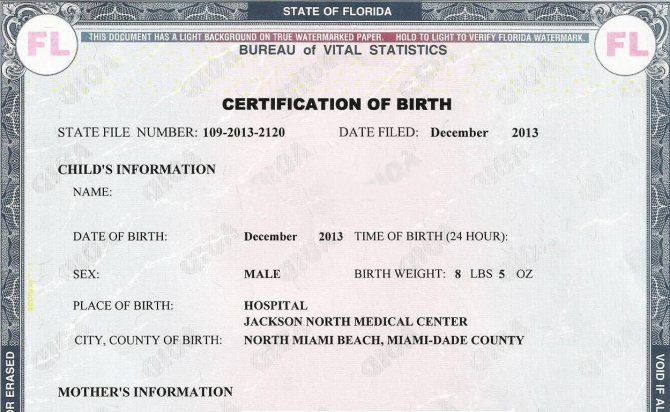
First of all, rejoice at the new addition to the family! But seriously, you need to do the following:
- In a foreign clinic you will only be given a birth certificate. This is an important document that will help you arrange maternity leave in Russia! Keep the original.
- Based on a certificate from the local registry office (magistrate or municipality), you will receive a birth certificate on which you need to affix a special stamp - an apostille.
- With the certificate, go to the nearest consular department of the Russian Embassy, but first the certificate must be translated into Russian by an accredited translator.
- Obtaining citizenship of the Russian Federation is not difficult: you submit an application to the consular department along with a certificate, after reviewing the documents, a stamp on the baby’s admission to Russian citizenship and a date are affixed to the birth certificate.
- At the same time, you apply for a foreign passport for the newborn there, it will take about 2 weeks, sometimes faster. Otherwise, how will you return to your homeland? Photos of the baby and an application are required.
When you return to your homeland, be sure to make several notarized copies of your birth certificate: you need them to receive a one-time benefit, regional and federal payments in Moscow and in any other city in the country.
Dupont, whose wife is about to give birth, prepares his five-year-old daughter for this event: “Henrietta, a stork will soon visit our house.” - Oh, I wish he didn’t scare mom. - Why? “Don’t you know, dad, how pregnant women react sharply to everything?”
It is fashionable today to give birth abroad, but it is not only fashion that motivates women who agree to take a long journey to an unfamiliar country. In our unstable world, dual citizenship is a great gift for your own children! Abroad, additional opportunities open up for a person; it is a kind of “ticket to the future.”
Birth certificate
The second step in “legalizing” a child is obtaining a birth certificate .
To do this, you need to submit an application to the municipality, magistrate or some other local government body (in other words, to any analogue of the Russian registry office). Upon arrival in Russia, you will no longer need to contact the local registry office to obtain a certificate for a newborn. According to the laws of the Russian Federation, any documents that are issued in other states are recognized as valid in the presence of legalization of certificates and certificates, unless this contradicts an international treaty. Legalization of documents is a procedure that confirms the authenticity of documents, signatures, and powers of the person who signed this signature. It also confirms the document’s compliance with all regulations of the country in which it was issued. The USA, almost all European countries and the Russian Federation do not recognize the process of legalization of documents.
Instead, you can contact any local government authority. There you need to submit a request for an apostille. It is placed on the document itself, but it can also be printed on a separate sheet, which is stitched with the certificate and will confirm the authenticity.
Some countries provide this service free of charge, but only for a short period of time after the baby is born.





